
Four years ago, shortly after hundreds of thousands of Rohingya refugees arrived in her community of Cox’s Bazar, Bangladesh, Hason Ara received food rations from the World Food Programme (WFP).
At the time, her husband, a food trader, was struggling to find any work, and with rising prices they could not afford to put food on the table for their family of eight. They often skipped meals so that their children could eat; and having chicken or fish was a fantasy.
Prices are now rising again, in a ripple effect from the war in Ukraine. Bangladesh, one of the world’s biggest grain importers, is highly dependent on Russia and Ukraine for food imports, and WFP buys more than 50 per cent of its grain from Ukraine.
The situation brings home the importance of resilience-building agricultural projects, in a country highly vulnerable to extreme weather events linked to climate change – and still reeling from the economic fallout of the Covid-19 pandemic.
In 2018, WFP set up a livelihoods programme to support rural women who were among the host community in Cox’s Bazar, backed by the UK and other countries. To date, it has benefited more than 45,000 women.
This helps to boost their incomes and gains them greater access to nutritious foods.

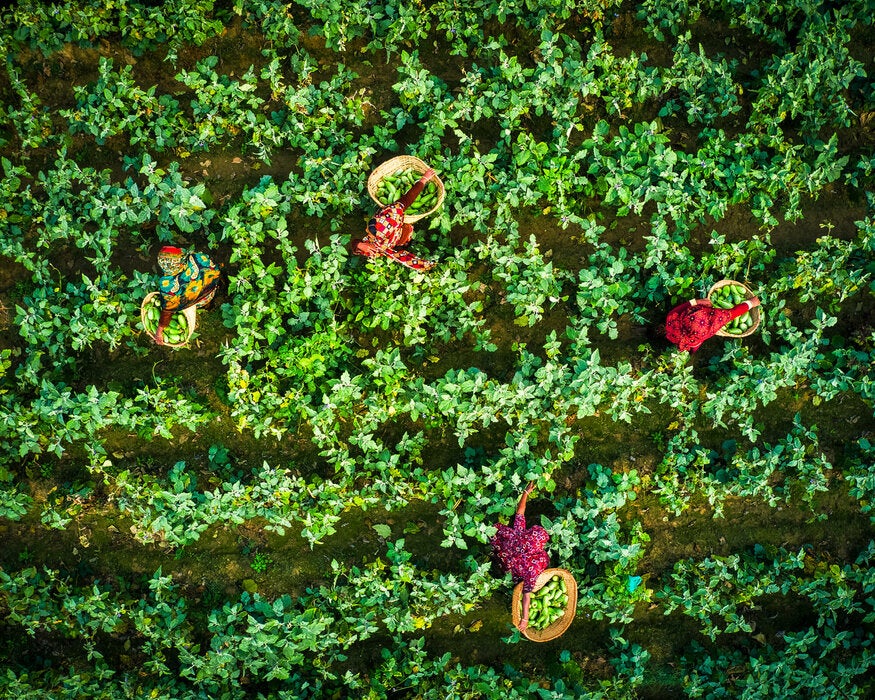

Last year, participants earned a total of nearly $7m (£5.38m), through a wide range of business activities including vegetable, fruit, mushroom and fish production, livestock rearing and poultry farming, handicrafts, garments and pottery.
Hundreds of women received a grant of $180 from WFP, which they used to start growing vegetables and rearing livestock. They also received a monthly allowance of $12.
Participants learned how to prepare a business plan, safely gather and deposit savings, and sell any surplus. They also learned accounting and basic financial management.

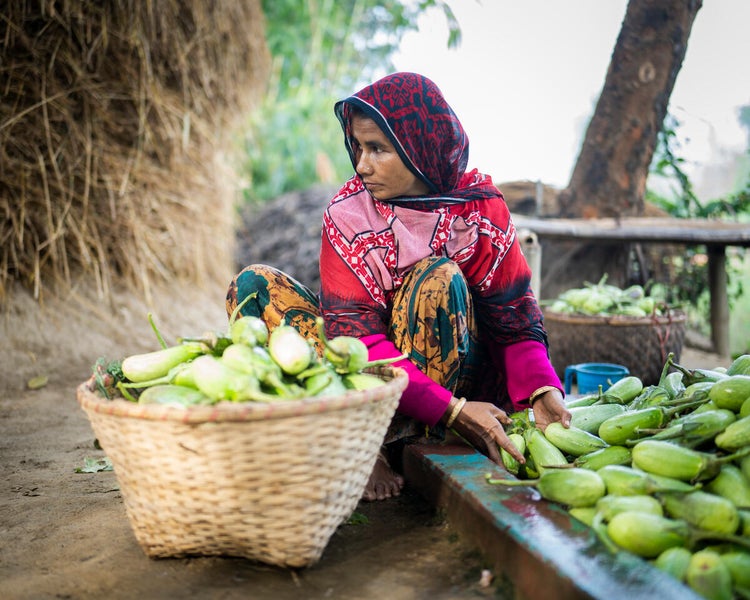
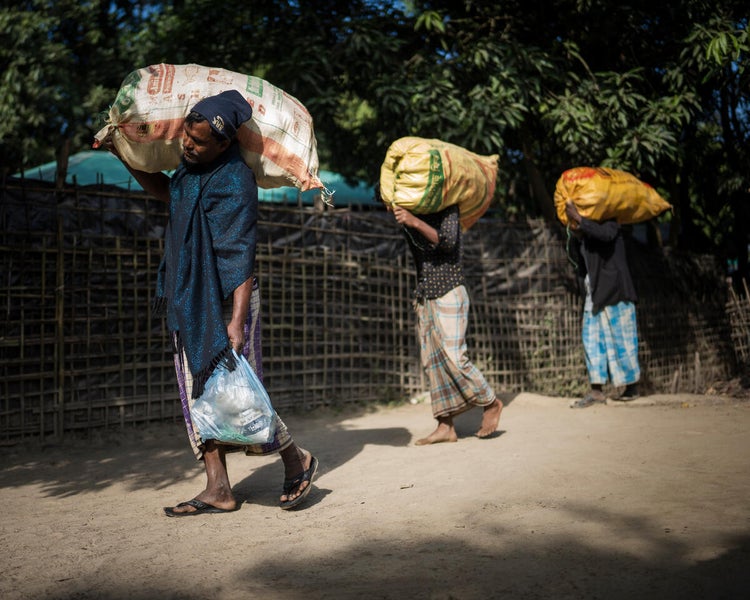
Hason Ara is one of the graduates. She now helps other women to start or expand their own economic ventures. “We were taught how to take care of savings, how to negotiate with buyers, and even how to protect and store our crops to prevent losses – dealing with insects and who to call if there is an infestation,” she says.
At the start of the training, the group of farmers that Hason Ara had formed with 23 other women would produce an average of 80kg of vegetables per week. Now they bring in 280kg.
“We have more land now – the land feeds us, and what we cannot eat, we can sell,” she says.
WFP has also built an “aggregation centre” in the community, where buyers and sellers can meet to negotiate and trade the fresh produce. The centre offers an auto-rickshaw service to help farmers carry heavy loads. Some of the produce is directly bought by the retailers who supply food to the Rohingya camps, where WFP provides monthly food assistance to almost 900,000 refugees – benefiting two communities at once.
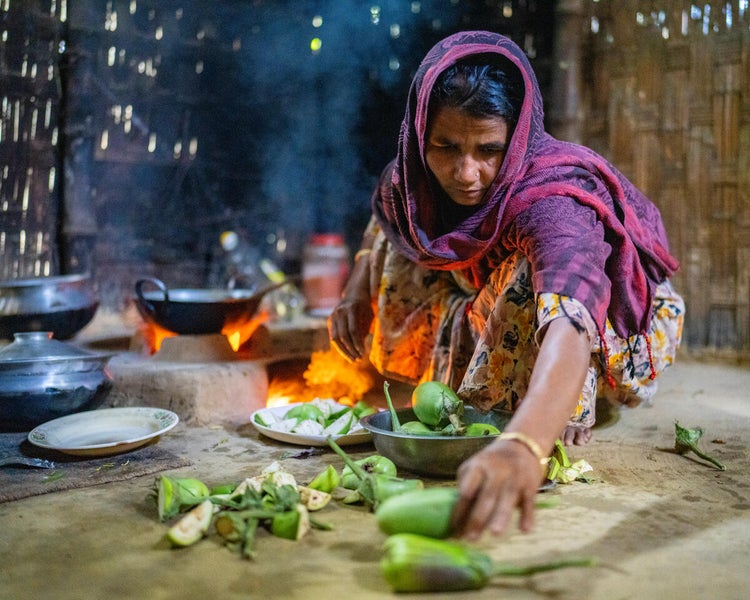
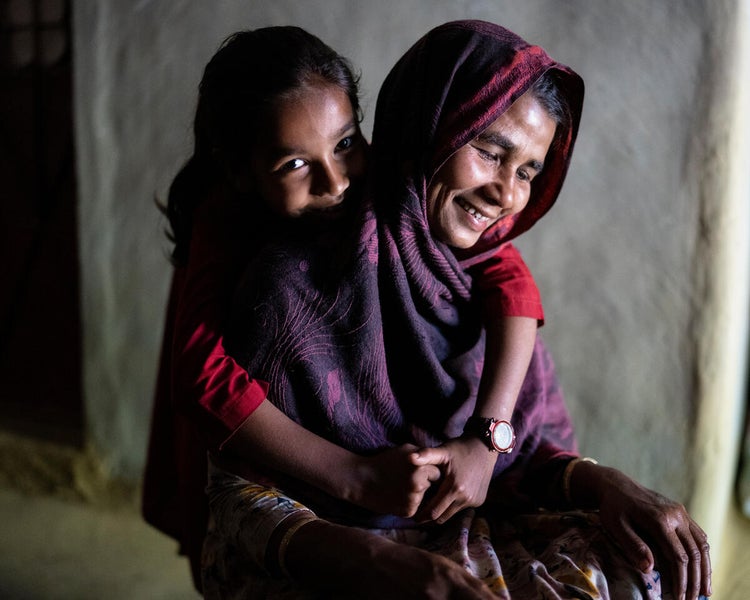
“We used to need to travel to the market in Ukhyia to sell any produce; now we can sell it at the aggregation centre, which is very helpful,” says Hason Ara. “Sometimes the buyers even come directly to us, because we have grown so big.”
Profits the group makes are divided equally among its members. Over four years, these have grown steadily, allowing Hason Ara to build a house, pay for the education of her six children and support her grown-up children’s marriages.
“I even bought tables and chairs so my children can study at home,” she says.
Growing economic autonomy is not the only change that’s transformed her life in the past four years. She also leads community discussions, driving home the importance of saving, investing and not giving up after difficulties such as a bad harvest.
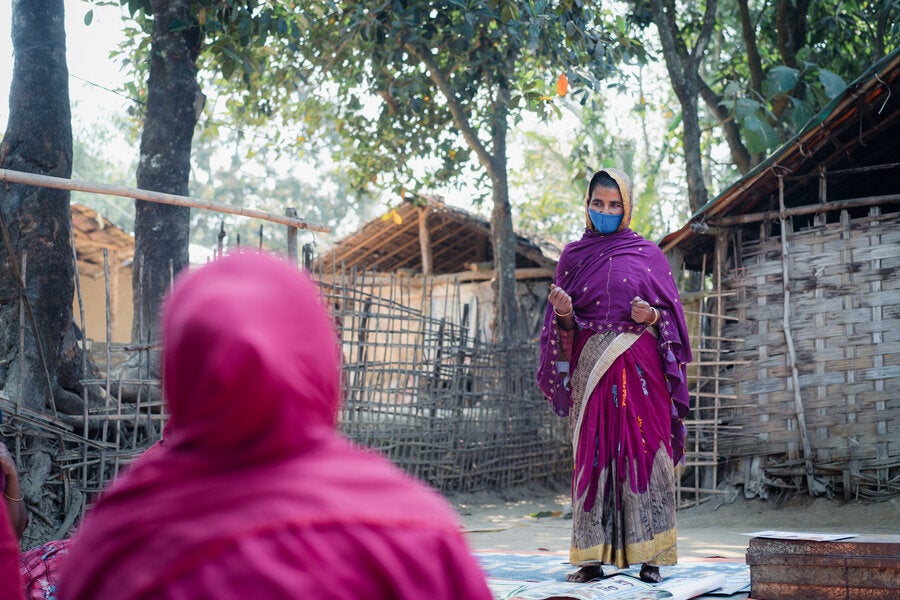
“Being so successful in this programme built my confidence and inspired me to do more,” she says. “I have realised that I can work well and I know that I am capable of more. People in the community often come to me to solve quarrels. I have found the confidence and courage to solve issues – if a family cannot afford to support a marriage, I help raise funds in the community to pay for it. At the same time, I often speak out to prevent the early marriages of the younger girls.”
Now, Hason Ara wants to take her leadership skills to the rural council which she hopes to join. “I have more ambition than in the past. I know that women can solve problems without involving a man, and I even think we are better at it.”
Find out more about WFP’s work here







